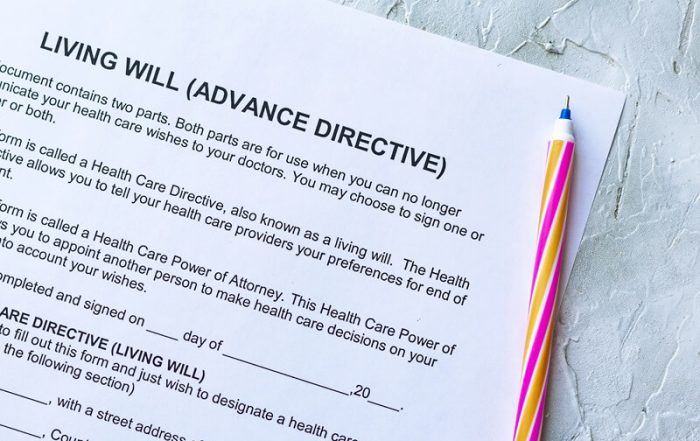Los Angeles Trust Administration After Grantor’s Passing
Los Angeles Trust Administration After Grantor’s Passing
Becoming a trustee in California entails a significant responsibility. Los Angeles Trust Administration can be intricate and demands strict compliance with legal guidelines and commitment to the deceased’s wishes. Fortunately, with the guidance of a skilled attorney, you can effectively manage your duties and honor the document’s terms.
This article provides an overview for those holding legal title to trust property. It outlines the essential steps in administering its assets and highlights key considerations to a smooth and efficient process.

Los Angeles Trust Administration Overview
When grantors create a trust, they appoint a trustee to manage it according to specific terms. The grantor transfers assets into the trust intending to benefit their designated beneficiaries. Upon the grantor’s passing, these beneficiaries will receive their assets based on the instructions in the trust document.
A trustee assumes responsibility for administering the trust based on its type and terms. Most often, trustees begin their duties after the grantor’s death. They have a fiduciary duty to act in the interests of the beneficiaries and ensure they receive their rightful share of the assets.
In California, the trust administration has specific guidelines that dictate how to manage this tool after the grantors death. The process typically includes notifying beneficiaries, managing investments, settling debts and taxes, and distributing assets. However, the actual steps may vary depending on the type of trust.
Given the complexity of their role, the trustee must execute every phase of the trust administration carefully to ensure legal compliance. Understanding the different stages can better prepare you to meet your obligations effectively.
Immediate Steps Following The Grantor’s Death
Prompt and thoughtful actions following the grantor’s death are essential for a smooth and efficient trust administration. They set a solid foundation for the entire process. Taking the earlier steps carefully helps prevent complications and disputes that could arise later on.
Obtain The Trust Document & Related Paperwork
As the trustee, your primary task is to locate and secure the original trust document, which outlines the grantor’s terms. Understanding these instructions is essential, as the grantor may have included specific conditions you must strictly follow.
In addition to the trust document, gather all relevant paperwork, including death certificate, property deeds, and financial statements. It is also advisable to obtain multiple copies of the death certificate. Different processes often require their copy, including notifying financial institutions, transferring assets, and other legal obligations.
Notify Relevant Parties
Once you have the trust document and necessary paperwork, notify all relevant parties of the grantor’s passing. California law imposes specific deadlines for these notifications, making timely action essential to avoid legal penalties.
You must inform the beneficiaries within 60 days of the grantor’s death. If any beneficiary is serving jail time, you must write a notice to the California Victim Compensation Board Director within 90 days of the passing.
Failing to send a notice can leave the trust vulnerable to future claims from unexpected beneficiaries. You may be personally liable for any resulting damages if assets are improperly distributed.
Additionally, if the grantor received California health care benefits, you must notify the Director of Health Services within 90 days. In some instances, you may need to inform the county recorder or assessor within 150 days of the grantor’s death. This applies when the trust property includes taxable real estate or a manufactured floating home in California.
Inventory & Valuation Of Assets
An essential step in trust administration is creating a detailed inventory of properties. The trustee typically bears this responsibility, involving identifying the deceased’s assets, whether held in the trust or not, as of the date of death.
This inventory should include real estate, bank accounts, investments, and personal property. The trustee must then determine the value of these assets, which may involve hiring professional appraisers, especially for real estate or valuable personal items.
Accurate asset valuation is critical because it directly impacts the federal and state taxes owed by the trust or grantor. It also guarantees that assets are priced fairly and reflect current market values.
With these tasks completed, the focus shifts to applying financial and management skills. In the subsequent steps, your role becomes increasingly vital in honoring the grantor’s legacy and fulfilling their final wishes.
Trust Asset Management & Distribution
This phase is where your responsibilities as a trustee become most active. It requires careful decision-making to protect and grow the trust’s assets while adhering to the grantor’s wishes. Trust asset management and distribution are critical in fulfilling the trust’s purpose and ensuring beneficiaries receive their due.
Manage Investments & Property
Effectively managing trust assets is essential for preserving or increasing their value for the beneficiaries. You must follow any investment strategies or guidelines outlined in the trust document. If the trust grants broad discretion, assess suitable options for growing and investing the assets while balancing risk.
Consider various factors relevant to the trust or beneficiaries in your investment decisions. These include economic conditions, inflation, projected tax outcomes, liquidity needs, and income stability. For example, in a trust containing stock investments, you should evaluate market trends and the tax consequences of selling stocks.
Additionally, you must create trust-specific bank accounts for financial transactions to keep trust funds separate from personal accounts. This separation helps prevent legal issues and ensures clear, accurate records of all trust-related activities.
Settle Debts & Taxes
Another key responsibility is settling the grantor’s outstanding debts and addressing tax obligations. You must follow a specific order of priority when addressing estate debts under California probate law. If there isn’t enough money to cover all debts within a category, you must pay obligations in that category proportionally.
Additionally, creditors must file a claim one year after the grantor’s death. You must evaluate any claims made against the trust and decide whether to allow or reject them. Sometimes, you may need to liquidate certain assets to meet trust obligations.
You are also responsible for filing the grantor’s final personal income tax return and any required trust tax returns in the state. Although California does not impose a state estate tax, federal estate tax considerations may apply, depending on the estate size.
Distribution Of Assets To Beneficiaries
Once debts and taxes are settled, you can begin distributing assets to the beneficiaries as outlined in the trust document. This step requires detailed attention, as any deviation from the trust’s terms could lead to disputes. Clear communication with beneficiaries is essential to manage expectations and avoid misunderstandings.
The trust may require assets to be held for a certain period or until a specific event occurs before fully dividing them. You may need to make periodic distributions or continue managing the trust assets during this time. With this, ensure proper allocation of any income generated by the trust assets before distribution to each beneficiary.
Deal With Disputes & Challenges
Even with careful administration, disputes may arise during the process. Common issues include disagreements over asset valuation, conflicts among beneficiaries, or challenges to the trust’s validity. Beneficiaries have 120 days from the date of notification to bring legal action to contest the trust.
As a trustee, you must be ready to handle these challenges, potentially through mediation or, if necessary, by seeking court intervention. A California trust administration lawyer provides invaluable guidance in these situations. Resolving any disputes is essential before you can finalize and close the trust.
Final Steps In Los Angeles Trust Administration
As you near the end of the process, it’s essential to carefully review the trust’s provisions to meet all final requirements. The final phase ensures that all loose ends are tied up and the trust has been administered according to its terms.
Prepare A Final Accounting
As one of your concluding responsibilities, you must prepare a detailed final accounting of all trust activities for the beneficiaries. This comprehensive report generally includes a summary of all assets, income, expenses, distributions, and other relevant financial information. It is a formal record of your actions and helps mitigate potential disputes.
Obtain Beneficiary Consent
Afterward, you need to obtain written consent from the beneficiaries to approve both the accounting and the final distribution of assets. It indicates the trust’s dissolution and that beneficiaries are satisfied with your trust management. It releases you from future liability related to the trust’s administration.
When everything is in order, you can close the bank accounts belonging to the trust. It marks the completion of your duties and brings the Los Angeles Trust Administration process to an official end.
Remember, the specific procedures for administering a trust can vary based on asset complexity and outstanding issues. Seeking guidance from a trust administration attorney in Los Angeles to navigate these intricate tasks effectively is highly recommended.

Los Angeles Probate Attorneys Streamlines The Process
Trust administration becomes more manageable with adept legal guidance. At Los Angeles Probate Attorneys, we assist you in navigating and overcoming the legal challenges involved in executing a grantor’s wishes. Our experienced team ensures every step is handled efficiently and compliant with California law.
We offer tailored support to prevent future issues, covering everything from understanding the trust terms to formal closure. If unexpected problems arise, our experienced lawyers can address them and ensure the process remains smooth. With our comprehensive assistance, you can be confident that we manage everything properly.
Our extensive network of accountants, financial advisors, and other professionals accelerates the process. These resources make a big difference in managing assets and settling the trust efficiently. Do not hesitate to seek our support for a secure and hassle-free trust administration experience.
Summary
Los Angeles Trust Administration after the grantor’s death involves significant responsibilities. As a trustee, you must follow legal guidelines meticulously, beginning with securing the trust document and notifying beneficiaries. You must inventory and value assets, manage investments, settle debts and taxes, and eventually distribute assets to beneficiaries.
Los Angeles Probate Attorneys can provide skilled and comprehensive support throughout the process. Our experienced team is your trusted ally in navigating complex tasks. We ensure lawful compliance and smooth administration while upholding the grantor’s terms.








